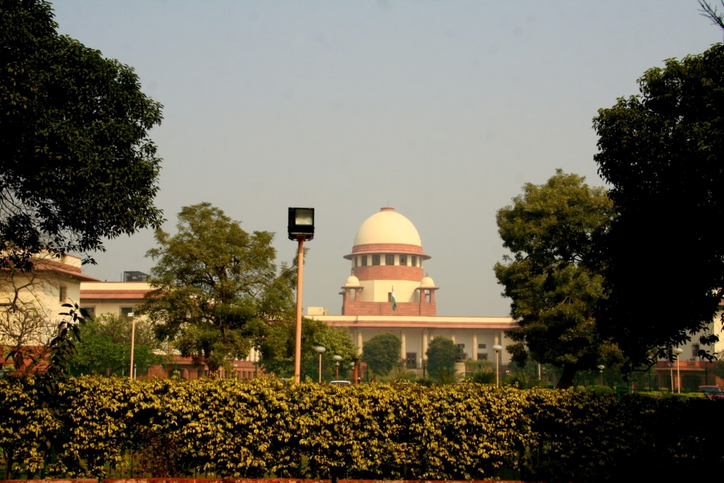SC restrains courts from passing orders in religious structures suits amid challenge to Places of Worship Act
The Supreme Court on Thursday issued a directive preventing all courts across India from passing interim or final orders, including survey orders, in pending cases concerning existing religious structures. The decision comes as the apex court hears pleas challenging the constitutional validity of the Places of Worship (Special Provisions) Act, 1991.
A bench comprising Chief Justice of India Sanjiv Khanna and Justices PV Sanjay Kumar and KV Viswanathan also barred the registration of new suits on related claims during the pendency of the case. “While suits may be filed, no suits would be registered, and proceedings undertaken till further orders of this court. In the pending suits, courts would not pass any effective interim or final orders, including orders of survey,” the bench stated.
Currently, 18 cases involving 10 mosques or shrines are under litigation across the country.
The Places of Worship Act prohibits altering the religious character of places of worship as they stood on August 15, 1947, and bars legal claims to reclaim such sites. However, several petitioners, including members of the Kashi Royal Family, BJP leader Subramanian Swamy, and religious leaders, have argued that the Act violates the rights of Hindus, Jains, Buddhists, and Sikhs.
The petitioners contend that the Act infringes upon constitutional rights under Articles 25, 26, and 29, which guarantee religious freedom, management of religious institutions, and protection of cultural heritage. The pleas assert that the Act unjustly excludes Lord Krishna’s birthplace while preserving the exemption for Lord Rama’s birthplace, creating discriminatory provisions.
Sections 2, 3, and 4 of the Act are under scrutiny for allegedly breaching the principles of secularism and the rule of law enshrined in the Constitution. Section 3 bars conversion of religious sites, while Section 4 prohibits legal proceedings to alter the religious character of such sites.
The petitioners also claim that the Act deprives religious communities of their right to reclaim properties misappropriated during historical invasions and unfairly limits legal recourse.
In response, organizations such as Jamiat Ulama-i-Hind, the All India Muslim Personal Law Board, and mosque management committees have filed applications supporting the Act. They argue that overturning the law would lead to a flood of litigation targeting mosques nationwide, disrupting communal harmony.
The court granted the Central Government four weeks to file an affidavit in response to the petitions. Critics of the Act claim the retrospective cutoff date of August 15, 1947, is arbitrary and irrational, effectively abating proceedings regarding encroachments by historical invaders.
(With inputs from ANI)














